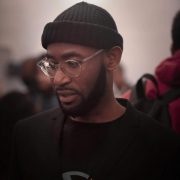Krept & Konan [@KreptandKonan] Discuss Drill Censorship at the Houses of Parliament with Hattie Collins [@hattiecollins].
![Krept & Konan [@KreptandKonan] Discuss Drill Censorship at the Houses of Parliament with Hattie Collins [@hattiecollins].](https://guap.co/wp-content/uploads/2019/06/LR-Krept-Konan-Hattie-Collins-Diane-Abbott-180x180.jpg)
On Monday, Dianne Abbot invited a panel of artists and industry figures to bring forward a conversation about the censorship and surveillance of the genre.
The conversation around the policing of drill music finally reached the heart of Westminster this Monday. The genre has been one of the many components in a wider debate concerning London’s knife crime rate and has been instrumental in demonising the expression of young musicians.
A discussion panel was moderated by This Is Grime author Hattie Collins and included Krept & Konan, Channel 4 News reporter Symeon Brown. Other guests included drill rappers Skengdo and AM, who are the first artists in British legal history to be sentenced for performing a song.

More often than not, the UK Media relies on sources like the Mayor of London, the Metropolitan Police or London MPs to strike a conversation which suggests drill has a direct involvement in the rise of violent crime in the capital.
The panel on Monday highlights a change in narrative where those with deep knowledge or connections to UK drill were given the platform lead a discussion about the banning of drill. Panellists discussed how censoring drill is scapegoating the music genre, is a civil rights and legal issue, and stems from systematic discrimination, before moving on to explore potential alternative solutions to fighting violent crime in the UK.
“How some people are treated over talking about acts of violence, and the way that other people are treated. Looking at the mechanism, the way that the law has been used, is, in itself, a major civil inequality.”
Symeon Brown
Just last June, the UK drill group 1011 were issued a court order requiring the artists to notify the Metropolitan Police of any new video releases within 24 hours. It also required that they provide 48 hours’ notice of the date and location of any of their performances or recordings. Met Police Commisioner, Cressida Dick accused the genre of “glamorising violence” prompting YouTube to remove over half of the videos she had identified as causes of violent crime. During an appearance on LBC radio she said that drill artists “describe the stabbings in great detail, with great joy and excitement”.
The discussion highlighted how these responses do not address the conditions to that provoke the creation of this kind of music. AM (of Skengdo & AM) said on the panel “With music, we thought ‘this is it, this is what’s going to change it for us’. Because at one point there was nothing, there was no hope – we were going to stick it out for as long as we could, just trying to stay alive… They need to be looking at other solutions and allocating money and opportunities in the right places.”

Panelists Krept & Konan are strong advocates of stopping the censorship of drill, and have launched a petition against the use of the Serious Crime Act to prosecute drill artists. You can sign the petition here. The two also held a screening of their short film and track ‘Ban Drill’, which was followed by a debate on the same topic.
Monday’s event is an encouraging move by Hackney MP Diane Abbot towards a more inclusive and democratic approach to discussing Britain’s problems, as it gave voice to those who connected to the issue.




![ZINO VINCI’S ‘FILTHY & DISGUSTING’EP BRINGS YOU TO THE CORE OF THE ARTIST [@ZinoVinci]](https://guap.co/wp-content/uploads/2023/10/Zino-4.jpg)




